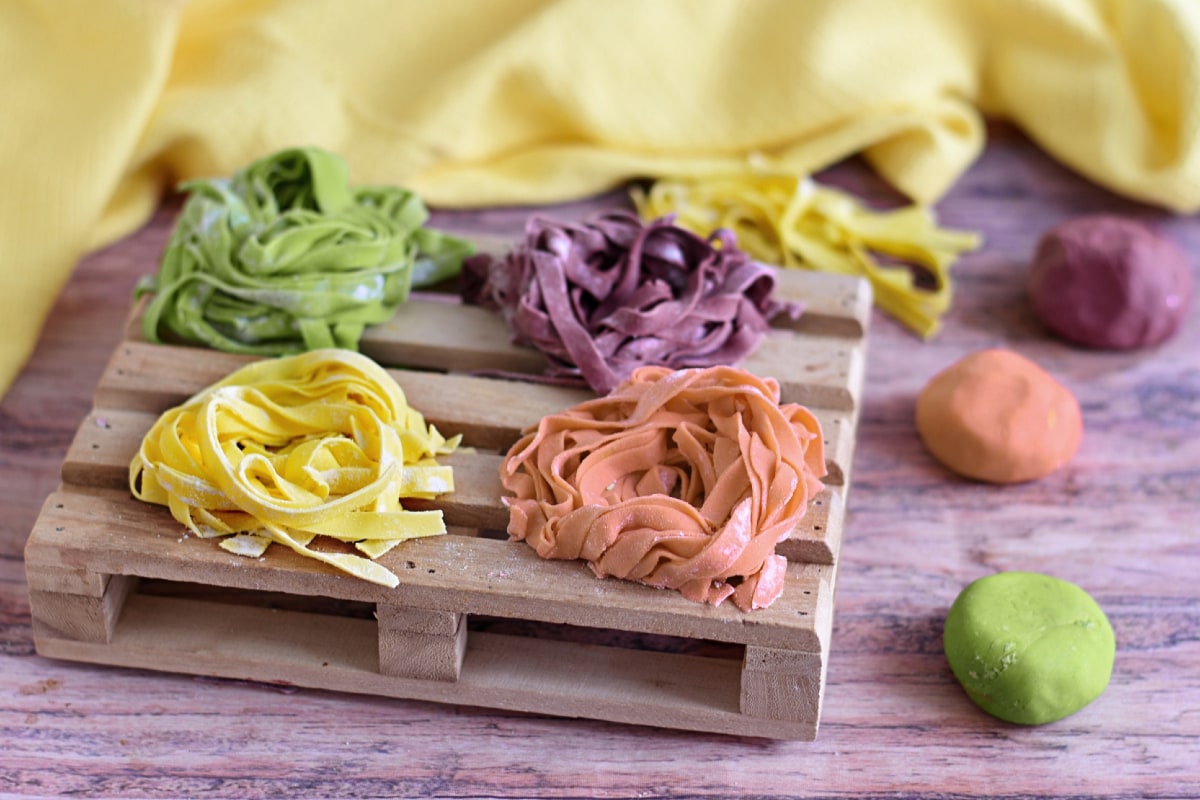Perfect Homemade Spaghetti Recipe: Savor the Flavors!
Perfect homemade spaghetti combines al dente pasta with a robust, flavor-rich sauce. Master this classic dish with a simple yet delicious recipe.
Crafting the ultimate homemade spaghetti is an art that calls for a balance of quality ingredients and precise cooking techniques. This dish, steeped in Italian culinary tradition, has graced dinner tables worldwide, earning its place as a comforting staple. A well-rounded spaghetti experience centers on the harmony between tender pasta, typically made from durum wheat, and a savory sauce, often tomato-based, simmering with herbs and possibly ground meat or vegetables.
By following a tried-and-true recipe, home chefs can elevate their pasta game, turning an ordinary meal into an extraordinary one. Not only does homemade spaghetti serve as a crowd-pleaser, but it also offers a customizable canvas for experimenting with flavors, ensuring that each rendition can be tailored to personal preferences or what’s currently in your pantry.
Crafting The Perfect Homemade Spaghetti
The foundation of every great homemade spaghetti starts with its essential ingredients. A truly authentic taste is achieved by using high-quality flour to make your pasta from scratch. For the discerning home cook, selecting durum wheat semolina is crucial for creating the perfect spaghetti texture.
Choosing the right type of pasta is pivotal for your dish, with options ranging from fresh to dried. Fresh pasta provides a delicate and light flavor, while dried pasta, made from semolina and water, delivers an al dente finish that holds the sauce beautifully.
An often underestimated ingredient, quality olive oil, plays a vital role in homemade spaghetti. It introduces a rich, fruity flavor that can elevate your dish from good to extraordinary. Ensuring the use of extra-virgin olive oil is a small but significant detail that makes all the difference.
Savor The Flavors! Sauce Preparation
Opting for fresh tomatoes over canned ones can make a world of difference in your spaghetti sauce. Fresh tomatoes offer a brighter flavor and a more authentic texture, but require peeling and de-seeding. For convenience, some chefs blend both fresh and canned to enhance taste while saving time.
- Fresh herbs, such as basil and oregano, should be used generously for their vibrant flavors that intensify during cooking.
- Dried herbs, while more concentrated, should be used sparingly and added earlier in the cooking process to properly infuse the sauce.
Balancing spices such as garlic, salt, pepper, and a pinch of sugar is crucial for achieving the perfect taste. Start with small amounts, taste frequently, and adjust accordingly to ensure that no one flavor overpowers the others.
The Art Of Spaghetti Al Dente
Achieving the perfect texture in homemade spaghetti is largely determined by precise timing. Begin by bringing a large pot of water to a rolling boil before adding a generous amount of salt, usually around 1 tablespoon for every 4 quarts of water. The high water temperature, combined with the correct salt levels, is essential for enhancing flavor and achieving an al dente texture.
To test for doneness, use the fork test approximately two minutes before the package instructions’ minimum time. Insert a fork into a strand of spaghetti, and if it has a slight resistance when bitten but is still tender, it’s perfectly al dente. This simple test is crucial as pasta continues to cook even after being removed from the water, and timing your test can mean the difference between perfectly cooked and overdone spaghetti.
Infusing Personal Touches
Infusing personal touches into your homemade spaghetti can transform a simple meal into a memorable experience. Embrace heirloom family secrets like using a dash of cinnamon or a spoonful of sugar in the sauce, which can
evoke flavors passed down through generations. Such nuances bring warmth and history to the table, making the dish not just food, but a story to savor.
Delving into regional variations unlocks a treasure trove of culinary diversity. Whether it’s incorporating a Sicilian touch with anchovies or a Bolognese twist with a meaty ragu, each region offers distinct ingredients and techniques to enhance the classic spaghetti recipe. This exploration of local flavors will make your spaghetti stand out and possibly become a new family favorite.
| Wine | Style | Pairing Notes |
|---|---|---|
| Chianti | Red | Rustic and tangy, perfect with tomato-based sauces |
| Barbera | Red | High acidity complements heartier meat dishes |
| Pinot Grigio | White | Light and crisp, pairs well with seafood spaghetti |
Wine pairings to complement the meal can elevate the dining experience. For instance, a robust Chianti pairs wonderfully with a tangy tomato sauce, while a light Pinot Grigio is excellent with seafood-infused pasta. Choosing the right wine not only enhances the flavors of the spaghetti but also adds an element of sophistication to the dining ambiance.
Elevating The Dining Experience
Presentation plays a pivotal role in the art of serving homemade spaghetti. It is said that diners eat with their eyes first, making aesthetics as crucial as taste. A well-presented dish can enhance the overall dining experience, evoking excitement and anticipation.
To garnish, sprinkle finely chopped fresh herbs such as basil or parsley to add a pop of color and an aromatic lift. Shavings or gratings of premium cheese like Parmigiano-Reggiano contribute to both flavor and visual appeal. These finishing touches are not only tantalizing but also hint at the nuances of flavor that await in every bite.
| Element | Detail |
| Herbs | Chopped basil or parsley |
| Cheese | Parmigiano-Reggiano shavings |
| Table Setting | Italian-themed, with red and white checkered tablecloth, and simple, elegant flatware |
Creating an Italian-themed table setting further amplifies the dining experience. Picture a classic red and white checkered tablecloth, simple yet elegant flatware, and perhaps a candle to set the mood. This backdrop forms the quintessence of a rustic Italian dinner, making every meal feel like a special occasion.

Credit: www.giallozafferano.com
Frequently Asked Questions For Perfect Homemade Spaghetti Recipe
How To Make Homemade Spaghetti Better?
Use quality, fresh ingredients like ripe tomatoes and fresh herbs. Season your sauce with salt, pepper, and a pinch of sugar. Cook pasta until al dente and toss it with the sauce. Garnish with freshly grated Parmesan and basil. Experiment with spices like oregano or chili flakes for added zing.
What Is The One Ingredient That Makes Spaghetti Sauce So Much Better?
The secret to an enhanced spaghetti sauce is the use of quality San Marzano tomatoes for their superior flavor and sweetness.
What Can I Add To Spaghetti To Make It Taste Better?
Enhance spaghetti with fresh garlic, basil, quality olive oil, parmesan cheese, and a pinch of salt. For extra flavor, consider adding chili flakes or blending in rich, sun-dried tomatoes.
What Is The Perfect Spaghetti To Sauce Ratio?
The ideal spaghetti to sauce ratio is about 1:1, with one part pasta to one part sauce, ensuring each strand is well-coated.
Conclusion
Mastering the art of classic spaghetti at home is an achievable goal with this recipe. Not only does it promise a delicious meal, but it also invites a warm, joyful experience in your kitchen. Give this perfect homemade spaghetti recipe a whirl, and let the rich flavors and simple pleasures of cooking from scratch impress your family and taste buds alike.
Share the love, one plate at a time!

